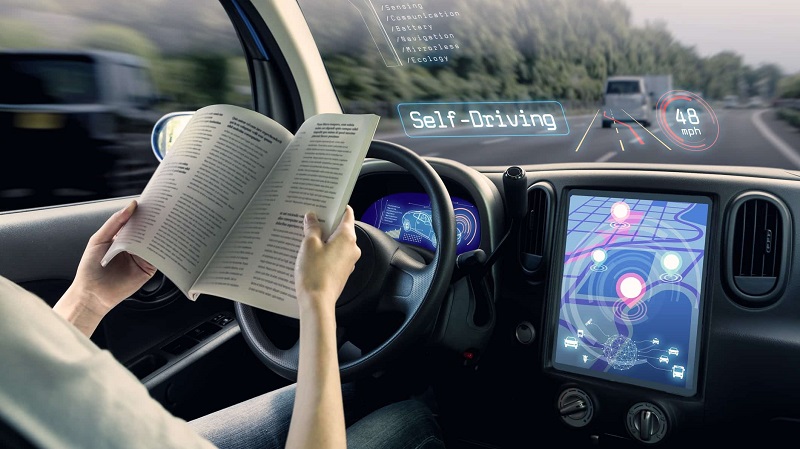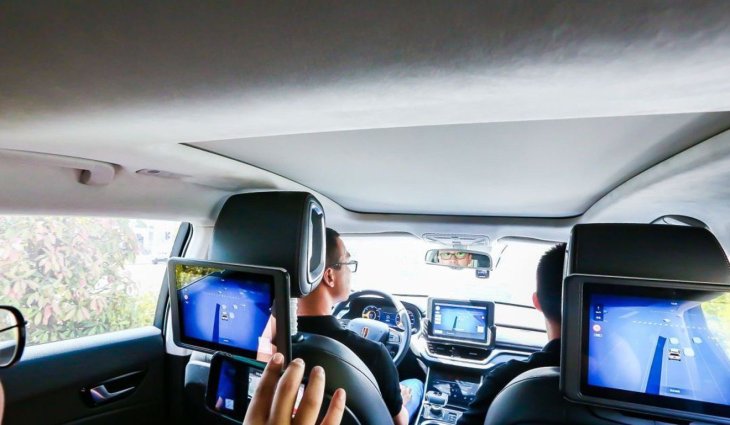This Company Just Introduces Its New Robotaxi Service
Harin - Oct 02, 2019

The giant search engine Baidu from China has just introduced its new robotaxi service with a fleet of 45 autonomous vehicles.
- The US Air Force Is Planning To Put Human and AI In A Combat
- Tesla Autopilot Cars Fooled Into Speeding With Just A Piece Of Tape
- These Chips Allow Cars To Talk To Each Other To Avoid Collision
China’s giant search engine Baidu just introduced its new robotaxi service with a fleet of 45 autonomous vehicles. The company’s plan is to let these cars run on 50-kilometer open roads before expanding the service to Changsha, the capital of Hunan. This is going to be the biggest pilot site of 70 square kilometers for this type of service.
Li Zhenyu, Baidu’s vice president and robotaxi project’s general manager said that, the testing activities in Changsha will prove the operability of Apolloaxi robot and help create a stepping stone for this service to official launch on the market. Though the piloting program, the project is eager to receive opinions from users to further improve the service.
Hongqi electric vehicles, which is a model developed by Baidu and FAW Group, will be used for this service. To ensure safety as well as follow the regulations of the government, there will still be a human operator inside each vehicle.

The project comes when Chinese cities are competing in the race of bringing the futuristic mobility service with high operational efficiency and low cost.
Similar projects have been launched in other regions across the country. Earlier, both Chuxing and AutoX announced that they were looking to launch a self-driving taxi service in Shanghai at the end of 2019 and the beginning of 2020.
Pony.ai and WeRide, two self-driving car startups based in China, have also been providing robotaxi services around their facilities for the past few years.
The idea of a driverless future is one the key factors in the field of artificial intelligence and has drawn in major investments globally. This is the field where both the US and China are seeking supremacy.
China expects that around 90% of the country’s motorways in big cities will support vehicle-to-vehicle as well as vehicle-to-infrastructure communications by the year 2020. Self-driving car sensors will gather info and then send the data to a cloud computing platform or an on-board computer on the car for instant decisions.
Featured Stories

Features - Jan 29, 2026
Permanently Deleting Your Instagram Account: A Complete Step-by-Step Tutorial

Features - Jul 01, 2025
What Are The Fastest Passenger Vehicles Ever Created?

Features - Jun 25, 2025
Japan Hydrogen Breakthrough: Scientists Crack the Clean Energy Code with...

ICT News - Jun 25, 2025
AI Intimidation Tactics: CEOs Turn Flawed Technology Into Employee Fear Machine

Review - Jun 25, 2025
Windows 11 Problems: Is Microsoft's "Best" OS Actually Getting Worse?

Features - Jun 22, 2025
Telegram Founder Pavel Durov Plans to Split $14 Billion Fortune Among 106 Children

ICT News - Jun 22, 2025
Neuralink Telepathy Chip Enables Quadriplegic Rob Greiner to Control Games with...

Features - Jun 21, 2025
This Over $100 Bottle Has Nothing But Fresh Air Inside

Features - Jun 18, 2025
Best Mobile VPN Apps for Gaming 2025: Complete Guide

Features - Jun 18, 2025
A Math Formula Tells Us How Long Everything Will Live
Read more

Mobile- Feb 17, 2026
Anticipating the Samsung Galaxy S26 and S26+: Key Rumors and Specs
The Samsung Galaxy S26 series is on the horizon, sparking excitement among tech enthusiasts.

Mobile- Feb 16, 2026
Xiaomi Launches Affordable Tracker to Compete with Apple's AirTag
For users tired of ecosystem lock-in or high prices, the Xiaomi Tag represents a compelling, no-frills option that delivers core functionality at a fraction of the cost.

ICT News- Feb 18, 2026
Google's Project Toscana: Elevating Pixel Face Unlock to Rival Apple's Face ID
As the smartphone landscape evolves, Google's push toward superior face unlock technology underscores its ambition to close the gap with Apple in user security and convenience.
Comments
Sort by Newest | Popular